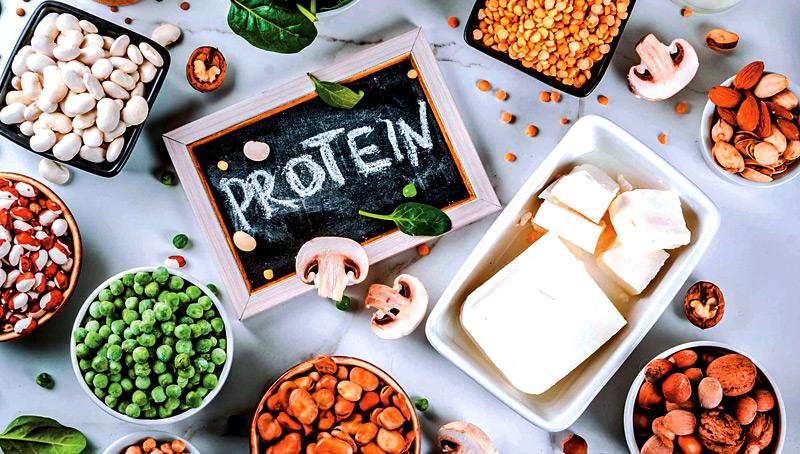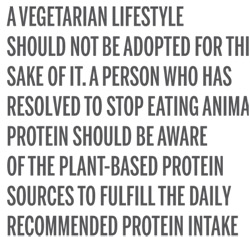
 People’s preference over food differs largely. They naturally tend to gorge more on the food that they like most. Some people like sweeter food than others. Some prefer savoury and spicy food over sweets.
People’s preference over food differs largely. They naturally tend to gorge more on the food that they like most. Some people like sweeter food than others. Some prefer savoury and spicy food over sweets.
There are those who more often eat junk and high-calorie food. Health-conscious people have trained their brains to avoid junk and unhealthy food. They incorporate healthier victuals into their meals even if they are not as tasty or appealing to the taste buds as high-calorie junk food.
It is difficult for some to have a meal without animal-based food such as fish, meat, or egg on their plate. Some people naturally have allergies to red meat such as beef, pork, lamb, and bushmeat.
 They only can consume lean meat such as chicken. Reports have shown that a considerable number of the world population is allergic to dairy products. Some avoid the same not due to any allergic reactions when consumed, but due to the taste and the odour. Egg is also avoided by a large number of people due to its odour when dishes are prepared using it.
They only can consume lean meat such as chicken. Reports have shown that a considerable number of the world population is allergic to dairy products. Some avoid the same not due to any allergic reactions when consumed, but due to the taste and the odour. Egg is also avoided by a large number of people due to its odour when dishes are prepared using it.
Civilisation
Our prehistoric forerunners had largely survived on meat. When the transition of human civilisation occurred from the Paleolithic to the Neolithic era, people began to incorporate more plant-based food into their diet. When the civilisation further advanced, some progressive elements such as religions, traditions, and cultures were introduced and the lives of humans became more complex. For the stone-age humans, soliciting food for survival was their chief objective of life.
Religions play a substantial role in shaping the food pattern of humans. Some religions directly proscribe the consumption of meat of certain animals while others preach the importance of refraining from consuming them. For example, Islam proscribes the consumption or use of any food or material prepared of pigs.
The cow is a sacred emblem of Hinduism. Hence, believers of Islam avoid the consumption of pork and most Hindus abstain from eating beef. Buddhism teaches the importance of non-violence and not killing animals. The meat- trade is one of the five trades discouraged by the Buddha. On the contrary, the Bible recommends believers to consume any living and moving thing (Genesis 9.3). Elsewhere, the Bible explains the type of animal meat that the believers should and should not consume.
Vegetarianism
Vegetarians can be believed to have been largely influenced by religions such as Buddhism and Hinduism. Albeit, vegetarians can be found in other faiths too. It could be observed in recent decades that a growing number of people have adopted a vegetarian or vegan lifestyle by giving up their meat-eating food habits. Their faiths and beliefs, concern for their health, the planet and animal welfare, preference, allergies for animal-based food, affordability, and the change in attitudes might have affected this.
There are many types of vegetarians. They are, vegans (strictly no food derived from animals), Lacto-Ovo vegetarians (eat dairy and egg), Lacto-vegetarians (eat dairy products), Ovo vegetarians (no meat, fish or dairy; eat only egg) and partial vegetarians or pescatarians (avoid red meat but eat fish or poultry). Among the types of vegetarians, vegans run a great risk of protein deficiency as they do not consume any food containing traces of animal products.
Although many studies have shown that adopting a vegetarian lifestyle yield more health benefits, it is not without negative consequences. Protein, vitamin B12, iron, zinc and Omega-3 fatty acid deficienciescan be seen in most vegetarians.
A vegetarian lifestyle should not be adopted for the sake of it. A person who has resolved to stop eating animal protein should be aware of the plant-based protein sources to fulfill the daily recommended protein intake.
Nutrients such as proteins, vitamin B12, zinc, iron, calcium, vitamin D, Omega-3 fatty acids are not abundantly found in many plant-based food. Hence, vegetarians often may experience deficiency of the nutrients. If someone who follows a vegetarian lifestyle feels that he or she does not take the recommended dietary allowance (RDA) and perhaps is undergoing certain conditions due to nutrient deficiencies, should consult a healthcare provider such as a nutritionist.
The recommended daily dietary allowance is 0.8g of protein per 1 kg of body weight. A person whose body weight is 80kg, should take 64g (roughly 65g) of protein. Vegetarians who do not eat an average of 50g of protein a day, there is an increased risk of protein deficiency.
Pulses are the ‘meat’ for vegetarians. Pulses such as chickpeas, green gram, horse gram, red lentil, black gram and cowpea are the commonly available plant-based proteins in Sri Lanka. Apart from that, seeds, nuts, and whole grains such as pumpkin seeds, sunflower seeds, cashew, sesame seeds, almonds, walnuts, and flax seeds contain protein too. Sri Lankan traditional rice varieties, red rice, and millets (Kurakkan, Thana, Meneri) are good sources of protein. Groundnuts, barley,soybean, and oats too contain a good amount of protein.
Sri Lankan ethnomedical practitioners advise people with protein deficiency to incorporate Wel Ala Kola into their diets as the plant is rich in protein. They believe that curried Wel Ala Kola increases the heat of the body due to the high amount of protein present in it.
Deficiency of this macronutrient involves tiredness, fatigue, sleepiness, skin problems such as dryness, flakiness, and brittle nails, as well as extreme hair fall.
Nevertheless, vitamin B12 is available only in animal-based foods. Egg and dairy products contain vitamin B12. Since no plant-based food can be found to fulfill the requirement of vitamin B12 for the body, foods and drinks which are fortified with this vitamin or vitamin B12 supplements can be recommended. Vitamin B12 deficiency should not be taken lightly as that can lead to anemic conditions and some neurological problems.
Iron deficiency
Iron is another micronutrient that vegetarians get less of. The human body gets iron in two ways. They are heme and non-heme. Heme iron is found only in animal products such as red meat and is readily absorbed into the blood. The body gets non-heme iron through plant-based food such as whole grains, seeds, nuts, dark leafy greens, dried fruits, and some vegetables. Additionally, eating a diet rich in vitamin C can increase the absorption of Iron into the body. Iron deficiency can mainly cause anemia. Apart from that loss of concentration, hair fall, sleepiness can also result if the body lacks the required amount of iron.
Calcium is important for bone health and teeth. Apart from that heart health, proper functioning of the nervous system and muscles are supported by calcium. Many vegetarians struggle to reach the required daily amount of calcium. Beans, lentils, nuts, leafy greens, tofu (made of soybeans), and dairy products are rich in calcium.
The body gets vitamin D from plant and animal- based foods. However, the vitamin D received from animal-based food is more potent. Vegetarians can get vitamin D from enriched cereals and dairy products.
Zinc and Omega-3- fatty acid deficiency is also common among vegetarians. Zinc is important for a healthy immune system. Studies have found that zinc plays a role in boosting memory as well as decreasing the risk of chronic diseases. Zinc is found in dairy products as well as in mushrooms, lentils, black-eyed peas, split peas and wheat germs. Local roots and tubers are good sources of iron and zinc.
Omega-3 fatty acid is commonly found in fatty fish such as salmon and fish oil. Vegetarians do not get the required amount of DHA (Docosa Hexaenoic Acid)due to the non-consumption of fish. Deficiency in DHA can have serious negative impacts on expectant mothers and children as it helps brain development and mental health. Vegan fatty acidsare available in soy, canola oil, flax seeds, chia seeds, and walnuts. Vegetarians can seek supplementation for this nutrient.
Although junk food such as pizzas, french fries, popcorns, potato chips, biscuits, crackers, chocolates, candies, sandwiches, burgers, mac-n-cheese, buns and wraps made of refined flour and other vegetarian ‘short eats’ that are high in sugar, salt and trans fat, colas and sodas are necessarily vegetarian foods and drinks, they may risk the life of vegetarians.
Dr. Naveen De Soysa is the Assistant Secretary of the Government Medical Officers’ Association and the Registrar in Community Medicine at the National Institute of Health Sciences. Panchamee Hewavissenti is a culinary researcher and recipe creator.
